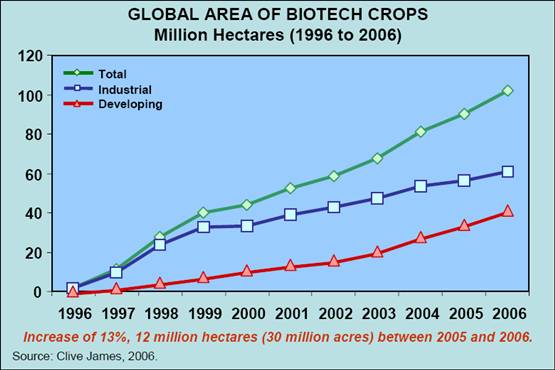
Salon.com:
In 2003, varieties of hybrid cotton seed known by the brand names Ganesh and Brahma were the popular choice among farmers in Gudepad, a village in the Warangal district of the state of Andhra Pradesh in India. By 2005, a majority of farmers throughout the entire district had switched to RCH-2 Bt, a genetically modified strain of cotton designed to produce its own insecticide.
The biotech industry would like us to believe that the migration to GM cotton was a result of individual farmers' testing out various seeds and coming to the sage conclusion that RCH-2 Bt performed the best. In contrast, anti-GM activists, even as they claim, despite the evidence in Warangal, that farmers are rejecting GM crops, also stress that whatever adoption does occur is likely the result of corporate propaganda and distribution muscle. Oh, and the new strains don't work as advertised, either.
But as is so often the case, neither side's explanation fully captures the situation on the ground.
No comments:
Post a Comment